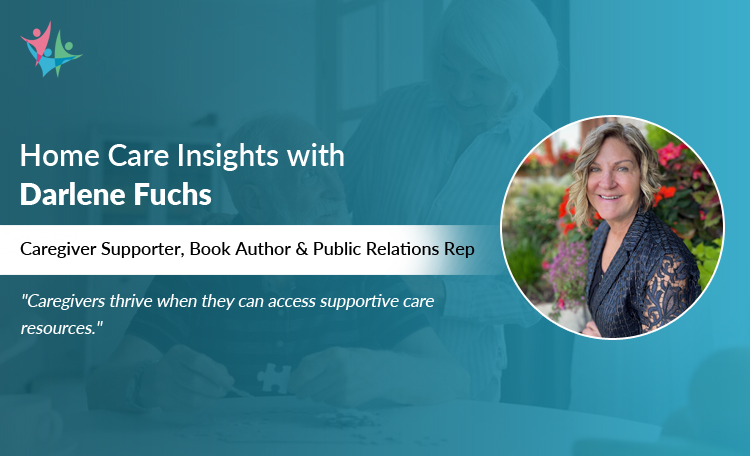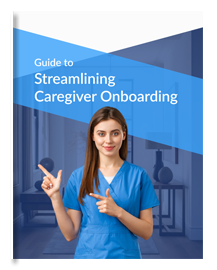In Conversation with Darlene Fuchs to Bring Her Insights on Assisting Dementia Caregivers
A critical aspect of comprehensive dementia care involves supporting the caregivers of those affected. The challenges inherent in caregiving for individuals with dementia encompass emotional, physical, and mental strains. Therefore, extending tailored assistance and guidance to these devoted individuals is imperative. Recognizing their unique difficulties not only enhances the quality of care for dementia patients but also acknowledges the pivotal role caregivers play in preserving their well-being and dignity.
Fuchs, our home care expert and author of the book “Get In the Boat,” believes that addressing these questions is like weaving together a story of the challenges and triumphs involved in caring for adults with dementia. Each piece of advice could form a chapter, shedding light on the caregiver’s journey and unveiling both trials and triumphs. I aimed for simplicity, providing a broad overview that captures the essence of caring for adults with dementia and their caregivers.
To shed some light on the same, we interviewed a home care industry expert to bring her perspective on caregiver support.

Who Did We Interview?
Darlene Fuchs draws from over six decades of life’s profound experiences to craft her writing. Unexpected twists and turns have marked her journey, but her resilience and unwavering faith shines through in her work.
Darlene has shared her life with her soulmate for more than four decades. In her latest book, “Get In The Boat,” she fulfills a promise made to her father, Richard, to chronicle the heart-wrenching dementia journey of her parents. This moving tribute not only honors their memory but also offers inspiration to those facing similar caregiving trials.
“Get In The Boat” delves into the profound depths of love and stands as a testament to the enduring strength and resilience of the caregiver’s human spirit.
Let’s get started with knowing what our expert thinks of the home care industry:
Question 1: What, in your opinion, can caregivers do to support seniors with dementia?
Caregivers can support seniors with dementia by establishing routines to provide a feeling of security, employing clear communication through simple language and gestures, prioritizing holistic care with physical activity, creating safe environments, fostering social connections for companionship, utilizing calming aids like music, practicing patience and empathy, and access resources to enhance effectiveness. Caregivers thrive when they can access supportive care resources.
Question 2: Do dementia patients need to make lifestyle changes to minimize the impact?
To lessen the impact of dementia, individuals can make lifestyle changes like eating a healthy diet, staying active through regular exercise, staying socially engaged for emotional well-being, doing brain-challenging activities, ensuring good sleep, maintaining a routine, limiting alcohol and tobacco, having regular health check-ups, and creating a safe home environment to prevent accidents and injuries. These steps contribute to overall cognitive and physical health.
Question 3: How should family members and caregivers communicate with dementia patients?
When communicating with dementia patients, it’s important to keep it simple and speak calmly. Use gestures, maintain eye contact to convey sincerity, and be patient while processing information. Visual cues like gestures and facial expressions complement verbal communication. Avoid arguments and limit choices to reduce stress. Flexibility in communication is essential, and encouraging interaction with memory aids, such as pictures, is beneficial. Tailoring communication strategies to individual needs is crucial for effective and compassionate interactions with dementia patients.
Question 4: Do caregivers and family members need to take certain steps to make the elderly’s house dementia friendly?
Caregivers and family members should prioritize safety by removing tripping hazards, installing bright lighting, using non-slip flooring, and labeling rooms/items to ensure a house is dementia-friendly. Additionally, arranging furniture for open spaces, securing exits, and incorporating technology like cameras and light sensors can enhance safety, creating a secure and comfortable living space tailored to the unique needs of those with dementia.
Question 5: What advice do you give caregivers dealing with dementia in older adults?
Caring for older adults with dementia requires a multifaceted approach. Educate yourself about the condition, connect with support networks, and practice patience while maintaining a consistent routine. Anticipate and adapt to changes, celebrate achievements, and manage frustration. Prioritize safety, encourage independence, and plan for legal and financial matters. Caregivers, don’t forget to attend to your physical and emotional well—being to prevent burnout.
In Conclusion
Prioritizing the well-being of caregivers as they support the elderly, particularly those with dementia, is paramount. Providing tailored support, acknowledging their challenges, and offering resources ensures that caregivers can sustain their vital role effectively.
By nurturing and empowering caregivers, we ultimately enhance the quality of care provided to the elderly, promoting dignity, compassion, and overall well-being within the caregiving journey.
